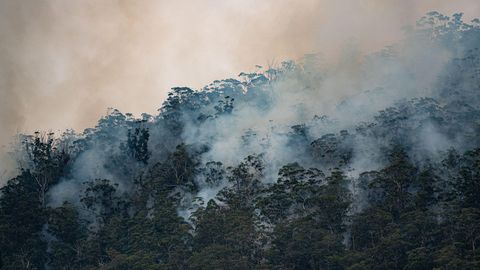Analyses & Studies
Intergovernmental Panel on Climate Change (IPCC) report: the actions we need to take

Despite its alarming conclusions for humanity, the release of the second part of the UN Climate Change report was largely eclipsed by news of the war in Ukraine. The SUSTAINABILITY INSTITUTE takes an in-depth look at the report’s findings and sets out the critical actions that businesses and individuals must take now to spare the world the worst effects of the climate crisis.
The report
The second part of the latest Intergovernmental Panel on Climate Change (IPCC) report was issued towards the end of February.
With 270 contributing scientists and 34,000 scientific papers as its basis, the report is the most up-to-date of its kind and represents the widest scientific consensus on the vulnerability of human societies and ecosystems to climate breakdown.
Its findings
The conclusions of the UN’s latest analysis are frightening: they demonstrate that the current trend towards ‘business as usual’ is threatening the stability of our societies with its cohort of extreme weather events, food insecurity, water shortage and the scarcity of other resources.
However, there is still hope to curb this trend. Mitigation and adaptation solutions are within reach and can be effective if we act swiftly.
Key points from the second part of this report
- Human and natural systems impacted by more frequent extreme weather events
Aquatic, terrestrial, coastal, and marine ecosystems are all suffering significant losses, with half of the living species studied already migrating to avoid the effects of global heating. Furthermore, half of the world’s population already faces water constraints, and food shortages are becoming more common. As well as having a negative impact on human health, climate breakdown adversely affects the economy in the most vulnerable sectors, such as agriculture, forestry, fishing, energy, and tourism.
3.3 to 3.6 billion people are living in contexts vulnerable to climate change.
- Protecting ourselves by protecting ecosystems
75% of our planet’s land has been altered by human activity. These changes pose a hazard to ecosystems and, in turn, put us at risk. The report demonstrates how climate, ecosystems, biodiversity, and human societies are all interconnected. By protecting ecosystems, we protect ourselves. Only 15% of land, 21% of freshwater habitats, and 8% of oceans are currently protected around the globe.
- Respecting our targets: every tenth of a degree counts
Short-term actions to keep global warming below 1.5°C would significantly minimise the expected losses and damage to human systems, operations and economies. We are already at 1.2°C of warming, with a strong probability of the Amazon becoming a savannah if we reach 1.5°C.
The Paris Agreement’s 1.5°C target could be exceeded as early as 2025, and current government pledges would result in a temperature rise of 3°C.
- Social justice is linked to climate justice
The vulnerability of populations and ecosystems to climate disruption varies greatly between regions – and even within the same region, Europe falls within these vulnerability zones. It is also relative to society’s vulnerability, level of development, inequities, and inclusion. Women, children, the elderly, indigenous populations, low-income households, and socially marginalised groups are the most vulnerable in cities, regions, and countries. In this report, the IPCC acknowledges for the first time that the historical pattern of colonialism is still affecting some vulnerable groups today.
- The costs of maladaptation
The report says that the adaptation strategies adopted by some countries, if at all, are ineffective andwill exacerbate global heating. Most crucially, the paper highlights how today’s “unsustainable” growth practises are putting ecosystems and humans at risk from climate change. As a result, successful solutions will inevitably incorporate equitable and just development, with a focus on the exchange of knowledge – particularly indigenous knowledge.
Taking action now
- What should we do?
The good news is that there are effective and feasible adaptation options that can decrease risks and ensure a more secure future for all, but we must act quickly. Specifically, three actions must be taken:
- Reduce our global emissions by 50% before 2030
- Increase the pace of adaptive measures, which are currently insufficient
- Assist the most vulnerable countries in their adaptation efforts
- How should we do it?
The IPCC’s Working Group III has just released the third and last section of the report, which focuses specifically on mitigation. In anticipation of this, the group had offered a few suggestions, including:
- Develop wetlands and forests
- 30 to 50% of land and water areas must be restored and protected “effectively and equitably”
- Transition away from fossil fuels and towards renewable energy sources along with reducing energy consumption
- Develop agroecology and responsible food systems
The SUSTAINABILITY INSTITUTE is the corporate branch of MAINTENANT Sustaining Now, a Community Interest Company with the social purpose of empowering communities, businesses and governments to develop and maximise their sustainable achievements. MAINTENANT offers a variety of sustainability games, workshops, consultancy services and e-learning courses.
